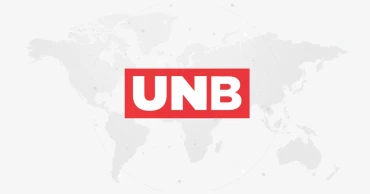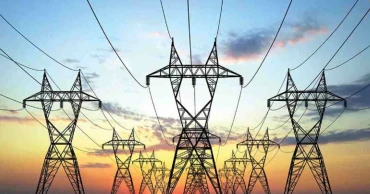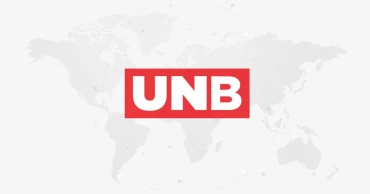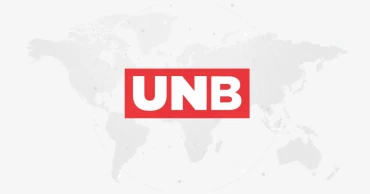Import duty
Mobile phone prices set to fall as NBR slashes import duty
The National Board of Revenue (NBR) on Tuesday (January 13, 2026) slashed customs duty on imported mobile phones by 60 per cent aimed at keeping handset prices within the purchasing capacity of consumers amid rising living costs.
It issued two separate statutory regulatory orders in this regard.
According to an NBR notification, the customs duty on imported finished mobile phones has been reduced to 10 per cent from the existing 25 per cent.
The revenue authority said the decision was taken to ensure that mobile phones remain affordable for the general public and to facilitate wider access to digital services.
Read more: NBR links ASYCUDA World with BGMEA e-UD system to modernise bond management
To protect local mobile phone assembling companies from facing adverse competition due to the duty cut on finished handset imports, the NBR simultaneously reduced customs duty on the import of raw materials and components used by domestic assemblers.
In another notification, the duty on importing such components has been lowered to 5 per cent from 10 per cent.
The NBR said the dual measures were designed to strike a balance between consumer interest and the sustainability of the domestic mobile phone assembling industry.
As a direct impact of the revised duty structure, the government estimates that the price of each imported finished mobile phone priced above Tk 30,000 will fall by around Tk 5,500.
Meanwhile, the price of each locally assembled mobile phone in the same price segment is expected to decline by approximately Tk 1,500.
With mobile phones playing a critical role in communication, digital financial services, e-governance and education, ensuring affordability has become a key policy priority, NBR officials said.
The revenue authority also reaffirmed that the government’s efforts to keep mobile phone prices within the reach of consumers would continue in line with its broader goal of promoting digital inclusion and expanding access to technology across the country.
At the same time, Bangladesh has introduced the National Equipment Identity Register as a major regulatory step aimed at curbing the use and trade of illegal, counterfeit and unregistered mobile handsets, strengthening consumer protection and safeguarding government revenue.
Launched under the supervision of the Bangladesh Telecommunication Regulatory Commission, the NEIR system requires every mobile phone to be registered through its unique International Mobile Equipment Identity number before it can access cellular networks.
Authorities say the platform will help block stolen or smuggled devices, reduce grey market imports, improve network security and ensure a level playing field for compliant importers and manufacturers who pay applicable duties and taxes.
Read more: NBR launches e-VAT module for paper-based returns
However, the rollout has triggered protests from mobile phone traders across the country particularly small and medium retailers who fear that the system could disrupt business and impose new financial and administrative burdens.
Protesters have demanded a longer transition period, clearer guidelines, amnesty for existing stock and stronger public awareness campaigns before full enforcement.
1 month ago
Import duty on sugar, eggs slashed; VAT reduced for edible oil
The National Board of Revenue (NBR) on Thursday issued a gazette notification exempting import duty on sugar and eggs, and import and local VAT on edible oil to increase supply and rein in the prices of these essential commodities.
According to an NBR press release, the existing import duty on eggs has been reduced from 25 percent to 5 (five) percent – which will reduce the price of eggs by Tk 13.80 per dozen at the import stage.
Govt slashes VAT on import of edible oil
Due to the reduction of import duty, the supply of eggs in the market will increase and the price of eggs will be reduced at the consumer level, so it will be more affordable to general consumers, the NBR hopes.
It also said that the costs of egg-using industries such as confectionery, bakery, egg-based food producing industry will be cut, returning “relief and balance” to the market.
This facility will remain in force till December 15, 2024.
In the case of supply of refined soyabean oil and refined palm oil, the NBR press release said that 15 (fifteen) percent VAT imposed at the local production level and 5 (five) percent at the local business level has been exempted and the import level VAT has been fixed at 10 (ten) percent instead of 15 (fifteen) percent for the import of crude soybean oil, crude palm oil, other including refined palm oil and refined soybean oil.
Due to the reduction and withdrawal of value added tax at the import stage and at the local level, it will be possible to keep the price of this essential commodity at a tolerable level in the market despite the increase in the price of edible oil in the international market, the NBR said.
This facility of edible oil will remain in force till December 15, 2024.
On October 8, the existing regulatory duty on refined and unrefined sugar was reduced from 30 percent to 15 (fifteen) percent.
The National Board of Revenue (NBR) has reduced the import duty on refined sugar from Tk 6,000 to Tk 4,500 per metric ton within a week to increase the supply of refined sugar in the market.
Due to the significant reduction of import duty and regulatory duty on refined sugar, the supply of refined sugar will increase in the market by increasing the import of refined sugar and it will be possible to keep the price of sugar at a tolerable level, the NBR said.
1 year ago
Govt cut VAT, duty on import of 4 essential items ahead of Ramadan
The government has reduced VAT and duty on import of rice, edible oil, sugar, and dates ahead of holy month of Ramadan.
The National Board of Revenue (NBR) issued four gazette notifications reducing the customs duties on these essential items from a minimum of 5 percent to a maximum of 47 percent.
According to the notifications, rice import duty and tax have been reduced by 47.25 percent. The duty has been reduced from 62.50 percent to 15.25 percent. Out of this, supplementary duty has been cut by 20 percent.
Bangladesh seeks IFAD support to boost wheat and edible oil production
This tax reduction will be applicablein the import of boiled and non-boiled rice.
However, prior to importing rice at subsidized rates, written approval must be taken from an official of minimum joint secretary rank of the Ministry of Food for each shipment. The tax reduction facility will be valid till May 15, 2024.
On the other hand, the Value Added Tax on refined and crude (non-refined) soybean and palm oil has been reduced to 10 percent from 15 percent, which will be in force till April 15.
Govt to import 12,500 MT of sugar from US
For sugar import, the fixed duty has been reduced from Tk 1,500 to Tk 1,000 per metric ton. This facility will be valid till March 31 as per NBR notification.
Besides, the import duty on date has been reduced from 58 percent to 43 percent.. It will remain in force till March 30.
One crore TCB card holder families to get 5 kg rice at Tk 30 from July
In the cabinet meeting held at the Prime Minister's office on January 29, Prime Minister Sheikh Hasina ordered reduction of duty on edible oil, sugar, dates, and rice on the occasion of Ramadan.
On January 22, the Ministry of Commerce wrote to National Board of Revenue (NBR) to exempt tax on rice, edible oil, sugar, and dates.
2 years ago
IPPs call for uniform import duty on primary fuels
Removal of discrepancies in the import duties imposed on primary fuels, which are used as inputs in power generation, can reduce the government’s subsidies in the power and energy sector.
The notion is being put forward by the private power producers of the country, also known as IPPs (independent power producers).
They are claiming that the discriminatory import taxes on primary fuels - furnace oil (diesel), coal, and gas (LNG) - ultimately favours the coal-fired power plants that projects the government’s biases towards ‘the dirtiest fuel’.
Currently there is a 5 percent duty on the import of coal, which rises to 34 percent on furnace oil, aka heavy fuel oil (HFO), and 22 percent on gas.
Read more: Ilisha-1 country’s 29th gas field: Nasrul Hamid
As a result, the price per MMBtu (metric million British Thermal Unit) of coal comes to Tk 10-11 and when power is generated from coal, it costs Tk 12-13. After adding 5 percent import duty, the cost of electricity from coal-fired power plants becomes Tk 13-14.
On the other hand, the price per MMBtu of HFO comes to Tk 11-12 and the power generation from the HFO costs Tk 11-12 due to its higher heat value. But when the 34 percent import duty on HFO is added, its power generation cost becomes Tk 15-16 per unit.
In the same way, the cost per MMBtu of imported gas is Tk 11-12 and its power generation cost becomes 10-11 due to its higher heat value. But after adding the import duty of 22 percent, the per unit electricity generation cost from gas-fired plants goes up to 13-14 per unit.
“If the discrepancies are removed from duty regime, and import duty on all fuels is made uniform at 22 percent, the production cost of electricity from diesel-fired plants will be lower than that of coal-fired power plants,” said Imran Karim, former president of Bangladesh Independent Power Producers Association (BIPPA), the trade body representing the interests of private power producers.
Read more: Many big industries using illegal gas connections: Nasrul Hamid
Karim, also the vice chairman of Confidence Group, a leading firm in private power generation, said the duty should be uniform considering the government’s commitment to support cleaner fuels - coal being the original dirty fuel. Furnace oil of course is no better.
“The government will receive more revenue from imported fuels, if the duty on all fuels are equalised,” he added.
According to the Power, Energy and Mineral Resources Ministry’s estimate, in the current fiscal 2022-23, the power and energy sector will require over Tk 23,000 in subsidies to cover its losses.
Of this, the power sector will require Tk 18,000 crore while around Tk 6000 crore would go on primary fuels.
Read more: New PSC: Petrobangla awaits final nods to invite int’l bidding for offshore blocks
Earlier, the loss in the sector was estimated much higher at over Tk 70,000 crore due to the excessive price hike of gas, coal and petroleum fuel following the war in Ukraine that began in February 2022.
But after the enhancement of fuel prices on the domestic market by more than 40 percent pn average and power tariff by more than 15 percent, the losses came down and subsequently the requirement for subsidy was also reduced to around Tk 23,000 crore, said officials at the Ministry of Power, Energy and Mineral Resources.
Private power producers claim that if the import duty on coal and furnace oil were made the same as that on gas, i.e. 22 percent, it would reduce overall costs and thus reduce the subsidy as well.
“Because, the power generation by furnace oil-based plants will automatically go down and it will ultimately have an impact on the overall tariff structure in the power sector by seeping through to both the wholesale and retail levels,” said an IPP plant operator.
Read more: Petrobangla initiates move to end foreign company’s monopoly in pre-paid gas metering system
Power Cell director general Mohammad Hossain said that both coal and furnace oil are dirty fuels, so by the IPPs’ logic, the import duty on these two fuels should be higher than on gas - not uniform.
“The import duty on coal and HFO should be equal and import duty on gas could be comparatively lower as it is the cleanest of the three,” he said.
2 years ago
Tipu Munshi expects sugar prices to drop in line with import duty
The National Board of Revenue (NBR) has been requested to take steps towards reducing the import duty on sugar, Commerce Minister Tipu Munshi said on Sunday.
The price of sugar will come down as a request has been made to NBR to reduce import duty on the daily item, which will create an effect on the price of sugar, he said. It is expected that the reduction in import duty will also allow the importers to sell on their goods at a lower price.
The minister revealed this information while talking to reporters after a meeting with the representatives of the chamber and trade bodies at the Secretariat.
Read more: Industries minister says sugar shortage 'artificial,' blames traders' hoarding
“The government has fixed the price of sugar in the month of November but it is now being sold at Tk 120, why? According to the documents, there is plenty of sugar available. The Directorate of National Consumers' Rights Protection (DNCRP) has started a crackdown against the illegal hoarders and slapped fines. Now punitive action such as jail will be taken, if needed,” he said.
Government is working hard as the common people can get sugar at a low price, said the minister.
Referring to the upcoming Ramadan, Tipu Munshi said the government is working and will keep working to keep the supply of essential commodities normal during Ramadan.
The ministry will soon form a committee to strengthen monitoring and vigilance to check soaring prices of essential commodities, said the minister.
Read more: Soybean oil, sugar prices go up again
Bangladesh Bank will also form a crisis management committee to monitor the market and supervise the import of goods, he said.
The committee will hold a meeting every three months to avoid any untoward situation.
3 years ago
Duty cut on fuel import : BPC to analyse the impact before easing price
State-owned Bangladesh Petroleum Corporation (BPC) will analyse the impact of the recent duty cut on diesel import and withdrawal of advance income tax before taking any decision on possible decrease in the price of the fuel, said its Chairman ABM Azad on Monday.
“We hope, we can complete our analysis within 2-3 days and send our finding to the ministry to take a final decision on any possible adjustment in diesel price”, he told reporters on Monday following a meeting with petrol pump owners.
His comments came a day after the government cut the duty on diesel import by half to five per cent and abolished all advance taxes on its import.
The changes were notified through a gazette notification issued by the National Board of Revenue on Sunday.
The order came into effect immediately and will remain effective until the end of (December 31) this year.
The NBR notification added that light and high speed diesel oils will get the new facilities.
Experts in the industry and the transport sectors believe that the new order came against the backdrop of the consistent demand from the politicians and business circles, as well as the common people, following the government’s hike of prices of all petroleum fuels.
The government on August 5 announced the largest ever hikes in the price of fuel oil - ranging from 42- 52 per cent – with effect from August 6.
At the consumer level, the retail prices of diesel and kerosene went up to Tk114 per litre, up by a whopping 42.5 per cent from Tk 80/litre.
Read: Govt to slash fuel price when it goes down globally: Nasrul Hamid
Octane price was raised to Tk135 per litre, up an eye-watering 51.7 per cent from Tk 89/litre - again the largest hike on record.
Lastly, a litre of petrol was set at Tk130 from at the pump, that used to be Tk 86/litre even just a few hours ago as of writing this report - another 51 per cent hike in one go that has no precedent in independent Bangladesh.
Bangladesh annually imports about 6.5 million metric tons of petroleum, of which 5 million metric tons is refined. Of these, the major portion is diesel - mainly consumed by transport, industry and power sector.
However, the petroleum price started witnessing a decreasing trend from August 1 after the per barrel crude oil price was recorded to be $130. After that record high, it witnessed a per barrel price below $90.
During the hike of fuel prices, it was said by the Energy Division that the state-owned BPC has been running a loss of Tk8,014.51 crore in petroleum fuel sales in the last six months, from February to July.
The BPC chairman said that despite price fall in international market, the organisation has to incur a loss of Tk10-12 per litre in diesel.
Responding to another question, he said discussion on the import of Russian oil still remains at the primary level and the government is assessing pros and cons of such import.
Earlier, State Minister for Power, Energy and Mineral Resources Nasrul Hamid had said that the government would go for readjustment in fuel prices if price in the global market comes down.
3 years ago
BPC incurs Tk 63 crore loss a day in petroleum sale, but experts suggest cut on import duty
Bangladesh Petroleum Corporation (BPC) is now incurring a loss of Tk 63 crore per day as the state-run company sells its imported products at rates lower than import cost.
According to fuel marketing agency, it has to incur a loss of Tk 37 per litre in the sale of diesel, Tk 10 in octane, Tk 15 in furnace oil and Tk 7 in jet-fuel.
“We’ve really been facing a tough situation. Everyday we’re communicating the situation to the Energy and Mineral Resources Division”, ABM Azad, chairman of the BPC told UNB.
He, however, declined to give any indication on any possible increase of the petroleum price in the country to offset the loss.
He said BPC has been considering different options and sending those to the top policy making level.
Also read: BPDB’s extra purchase order of petroleum puts BPC in trouble
“The government is the ultimate authority to make the final decision on any issue in regard to the petroleum fuel”, said the BPC chairman.
Responding to a question on any cut in taxes on the import of petroleum, Azad said, he did not make any such suggestion as it is beyond his capacity.
But he noted that in last two fiscal years, the BPC had to pay Tk 19,000 crore in VAT and taxes.
The BPC chairman’s remarks came amid the growing petroleum price hike on the international market due to the war between Russia and Ukraine.
The crude oil price already crossed $113 per barrel on Thursday which was below $100 before the start of the war.
3 years ago
Govt approves import of 17 lakh tonnes of rice
The government has permitted 428 businesspeople and firms to import 17.2 lakh metric tonnes of rice at a lower duty rate, aiming to keep the rice market stable in Bangladesh.
The Food Ministry gave the permission from August 17 to 30 and informed the Commerce Ministry about it, said an official.
On Monday, another 79 business firms got permission to import 1.01 lakh metric tonnes of boiled and atap (non-boiled) rice. With that, the Food Ministry permitted a total of 428 firms to import some 17.2 lakh metric tonnes of rice.
Also read: Import duty on rice reduced to 25%
However, the importers will have to market the imported rice by September 25 next.
The other conditions imposed by the ministry include ensuring maximum 5 percent broken grains among the imported rice, opening LC (Letter of Credit) within 15 days and informing the Food Ministry about the LC-related information through emails instantly.
Besides, the imported rice cannot be repackaged using the name of importers and the rice will have to be sold in plastic sacks.
If anyone fails to open LC in the stipulated time, the permission will be cancelled, the ministry says.
Earlier, 41 firms got permission on August 17 last to import 4.10 lakh tonnes of rice, 69 firms on August 18 to import 4.18 lakh tonnes of rice, 91 firms on August 21 to import 3.91 lakh tonnes of rice, 73 firms on August 22 to import 2.22 lakh tonnes of rice (boiled and unboiled ones), 41 firms on August 23 to import 94,000 tonnes of rice (boiled and unboiled ones) and 34 firms on August 24 to import 57,000 tonnes of rice (boiled and unboiled ones).
Also read: Govt to buy 11.50 lakh mts Boro rice
On August 12, the National Board of Revenue (NBR) issued a gazette notification slashing the import tariff on rice to 25 percent from 62.5 percent in order to keep the rice prices stable in the local market. The facility of lower import duty will remain effective till October 30 next.
The imported rice has already started entering Bangladesh through land ports, the official added.
4 years ago
Import duty on rice reduced to 25%
The import tariff on rice has beencslashed to 25 % from 62.5% an official announcement said on Thursday.
The change would be made effective from October 30 next.
Read: None will be allowed to make rice market unstable: Food Minister
The National Board of Revenue (NBR) issued a gazette notification in this regard.
According to the notification, rice importers have to pay 5% Advanced Tax (AT) and 5% Advanced Income Tax (AIT) in addition to a 15% customs duty.
Read: Bangladesh to import 550,000 mt of rice soon to boost stock
However, it will only be applicable to the imports of boiled and unboiled Atap rice.
Previously, the revenue authority had also reduced the tariffs to 25% last year in a bid to control the price hike by encouraging imports, but that facility was only valid till April this year.
4 years ago
BARVIDA demands car market expansion, rationalising import duty
Bangladesh Reconditioned Vehicles Importers and Dealers Association (BARVIDA) on Wednesday (April 28, 2021) demanded measures for expansion of the car market and increasing the government’s tax collection by rationalising the import duty on reconditioned vehicles and new cars.
Leaders of the BARVIDA placed the demands at a virtual press conference held from its Bijoynagar office.
Putting emphasis on the stability in the already-established reconditioned car industry, they said with the current perspective, the country needs a realistic, progressive, and implementable policy so that real automotive manufacturing industry is established which will also guarantee the protection of stability in the years-long business of import of reconditioned vehicles.
Read NBR expands net, moves to raise revenue collection from income tax wing.
Moreover, it is very important to reduce the discrimination in tariff in import of reconditioned cars and new ones for the greater interest of the market expansion of the cars in the country, said the BARVIDA leaders.
They said the government can collect huge revenue from the higher sales of cars among the growing middle-income consumers during the period of the country’s graduation to a developing nation from the list of least developed countries (LDC).
Addressing the conference, BARVIDA president Abdul Haque welcomed the government’s initiative of formulation of ‘Automotive Industrial Development Policy 2020’ adding that the production of the proposed ‘Made in Bangladesh’ or ‘National Car’ branded motor cars in Bangladesh would be a pride for BARVIDA.
Also read: Resolve custom valuation issues of imported cars: BARVIDA
But it needs to consider the current situation of the sector concerned, experiences of other countries and realities of the country before the establishment of any new industry, he said.
In this case, the BARVIDA leaders suggested the protection of the four-decade import business of the reconditioned vehicle industry, said a press release.
They also suggested the government assess the impacts and effectiveness of automotive industrial policy by an independent and credible international agency.
The leaders said the local business of imported reconditioned vehicles was established with the investment of several thousand crores of Taka, which has created employment for over one lakh people directly or indirectly. The sector has been contributing to the economy paying thousand crore of Taka as revenue to the national exchequer every year.
Also read: BARVIDA donates ambulance to PM's humanitarian programme
Noting that the environment-friendly cars produced in Japan with resale value are the first choice by the local customers, they said the BARVIDA is concerned whether any screw driving industry is going to be established in the name of setting up the country's own car-making plant denying the customers’ choice.
Referring to a recent survey of the Japan International Cooperation Agency (JICA), the BARVIDA president said it is feasible to establish the country’s own car-making plant, if one lakh pieces of car are sold in the domestic market of Bangladesh in a year.
However, in the domestic market of Bangladesh some 10,000 units to 20,000 unit cars are sold in a year, he said.
“So, the government needs to take measures to expand the local car markets before going for local production and aiming to export cars. In this case, it is very urgent to remove the discrimination of tariff structures on import of reconditioned cars and locally produced cars,” he said.
Read Experts for more growth-friendly, simple, transparent tax system
In a recent pre-budget meeting with NBR officials, the BARVIDA demanded for increasing the depreciation benefit in import of cars by restructuring the supplementary duties on import of hybrid and fossil fuel-driven cars and withdrawal of supplementary duty on import of microbuses, the BARVIDA president said.
The BARVIDA leaders said the import of reconditioned cars declined significantly over the last few years in Bangladesh because of wide discrimination of duty between on import of reconditioned and new cars. So, the government’s revenue collection from the sector also faced a stumble.
The BARVIDA did not get any loan from the government-sponsored stimulus package started one year ago.
Read BARVIDA for reforming customs valuation system for vehicles
The Chattogram port has yet to waive the port demurrage charge that was levied last year by the port authority on the importers even during the general public holidays despite an application by the BARVIDA.
But the port authority has exempted the tax on container transportation. So, for the revival of the sector from the fallouts of the Covid-19, the BARVIDA wants to see the implementation of their placed proposals in the upcoming national budget for fiscal 2021-22, the leaders said.
BARVIDA vice president Saiful Islam (Samrat) and secretary-general Mohammad Shahidul Islam also spoke on the occasion.
Read NBR sets its sight on cranking up tax-GDP ratio
4 years ago








.jpg)
.jpg)






